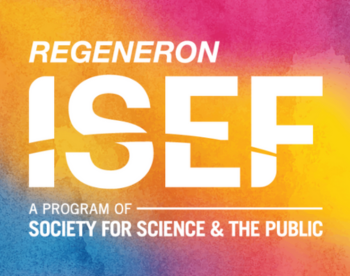An Ultimate Guide to the National History Day - 9 Tips to Help You Win It
What is NHD?
National History Day (NHD) is a non-profit educational organization founded in 1974 and dedicated to improving the teaching and learning of history.

Headquartered in Maryland, USA, NHD attracts more than 600,000 middle and high school students from all over the world to conduct and publish original research on historical topics each year.
The competition is a one-year academic program that focuses on cultivating historical research, interpretation and creative expression for students in grades 6 to 12.
In the competition, students can gain a deep understanding of the past through extensive research in libraries, archives, and museums.
Present their conclusions and evidence through essays, exhibitions, performances, documentaries or websites, and pass a series of competition levels to be evaluated by professional historians and educators.
Is NHD worth it?
As one of the most influential historical research competitions in the United States and even around the world, the NHD National History Day Competition focuses on training students' communication skills, project management skills and historical thinking skills, which are very eye-catching skills in the eyes of college admissions officers!
In the United States, NHD is fully recognized by many top universities such as Harvard University, Stanford University, Princeton University, and Yale University, and has extremely high gold content. Drew Gilpin Faust, former president of Harvard University, commented: "It links the past to the future and it connects all of us to the purposes that guide us."
In addition, many academic masters such as Harvard University professors, Princeton University honorary professors, and Pulitzer Prize winners have provided academic advice and support to NHD, laying the foundation for the academic level of the event.
After years of development, it has become a global academic competition. More than 500,000 middle school students and more than 30,000 teachers participate in it every year. In addition to American middle school students, there are also middle school students from South America, Asia and other countries in the region.
It has now become the most valuable humanities competition in the United States.
According to data from the official website, students who have participated in NHD not only have an advantage in admissions, but their learning abilities have also been significantly improved. In national standard tests in multiple subjects, their performance is better than that of their peers who have not participated in the competition.

An Ultimate Guide to the NHD
The NHD theme in 2025
NHD has a theme every year, such as "Conflict and Compromise", "Tragedy and Victory in History", "Breaking Barriers", "Communication in History", etc. The 2025 NHD theme is: "Rights & Responsibilities in History"

This year's theme invites students to think about time and place, causes and effects, change over time, and impact and meaning. The key to this theme is rights and responsibilities. These are two powerful forces in history, and neither can exist without the other.
You can download the theme book here.
Suitable for students
Suitable for students in grades 6-12, mainly divided into two groups.
Junior Division: students in grades 6-8
Senior Division: students in grades 9-12
*Please note for team competitions:
Each team can include 2 to 5 students
Team members can be in different grades, but must all be in grade 6 or above
When participating in a team competition, the selection of the participating group must be based on the age of the oldest team member.
Entries
Languages: All entries should be submitted in English
| Category | Participation form |
| Paper | Only individual participation |
| Performance | Can participate individually or as a team |
| Documentary | Can participate individually or as a team |
| Exhibition | Can participate individually or as a team |
| Website | Can participate individually or as a team |
Work requirements
- Papers
- Submit in PDF format
- Total word count should be between 1500-2500 words
- Traditional essays and other types of creative writing are acceptable
- All citations and ideas must be cited
- Make sure your paper is grammatically correct
- Performance
- The performance should not exceed 10 minutes.
- Multimedia can be used during the performance.
- The performance can be exaggerated but cannot distort history.
- Documentary
- Submit as MP4 video file + PDF written materials (title page/process documents/bibliographic notes)
- Duration should not exceed 10 minutes
- All images, music and movies in the video must be cited
- Exhibition
- Submit as PDF exhibit + PDF written materials (title page, process documentation, bibliographic notes)
- Exhibits must be digitally created, any design software (Google Slides/PowerPoint/Canva, etc.) can be used to create a digital exhibit
- Exhibit text is limited to 500 words
- Layout dimensions must be no larger than 74 inches wide by 72 inches high
- Website
- Create a website using NHDWebCentral™
- Written materials (title page/process documents/bibliographic notes) must be submitted in PDF format
- The maximum word count on the website is 1,200 words
- The total length of multimedia clips on the website must not exceed 3 minutes
Evaluation Criteria
- Historical Quality (80%)
This section will be evaluated using the same criteria across all categories. This section focuses on the strength of the work's historical argument, research, and relationship to the topic.
- Clarity of Presentation (20%)
This section will be evaluated differently across categories. This section will assess how well the entry uses the tools of the category to make its argument.
Award settings
The competition judges will select the top three in each category of each round of regional, state, and national competitions to enter the next round of competition.
Similarly, in the finals, the top three in each category of each group will win awards, and the first prize will be sponsored by the National Endowment for the Humanities (NEH), and the winner will receive the title of "NEH Scholar".
In addition to regular awards, works entering the state and national competitions have the opportunity to win more than 30 special awards, "Outstanding Chapter Entry" awards, and college scholarships.
Contest Process

The process begins at the student's school, whether it's public, private, parochial, charter or homeschooled, you can find a local contest here to start the History Day journey, where top finishers advance to the regional competition and then to the affiliate competition. The top 2 entries in each category are invited to compete in the national competition.
Each June, approximately 3,000 students from around the world compete in the national competition at the University of Maryland, College Park
Please note: Between the two levels of competition, students are encouraged to revise their entries based on what they have learned and the judges' feedback.
You can find the official contest rules details here
Tips for winning NHD
1. Know the topic
The judges will ask you any questions. Make sure you know how to pronounce the names of people and places. Be prepared to answer questions like "Why is this topic important to you?" or "How does your topic affect history?" If you really don't know, don't try to bluff - just say "I don't know".
2. Follow the rules
Even if you have an excellent presentation and win the regional competition, you may be demoted or disqualified if you don't follow one of the rules. Read the rules carefully.
3. Use primary sources
Make sure you understand the difference between primary and secondary sources, and use as many primary sources as possible. Sources you find locally can make your speech powerful and unique.
4. Choose a unique topic
If there are three speeches on the same topic, it is unlikely that the judges will choose all of them. It is okay to give a speech on a popular topic, but make sure there is something special about your speech to stand out. Use NHD's research skills resources to help you choose one topic.
5. Talk to adults
Your speech must be your own work, but ask parents, teachers, and as many people as possible for help. Ask them what they remember (and include these as interviews in your sources). Ask them to review your speech with you and give you some suggestions for improvement.
6. Consult experts
There are many sources on the Internet now, but it still takes serious effort to find good materials. Try calling history teachers, librarians, college professors, or other professionals to get information. Some of them may be too busy to help you, but others enjoy sharing their knowledge with young people. They may lead you to sources you can't find on your own. If you really can't find someone around you to consult, maybe you can ask Embark mentors. Embark is an educational institution that focuses on customized scientific research training and competition coaching for young people, such as Regeneron ISEF, Regeneron STS, CTB, NHD and other internationally renowned competitions. Embark mentors have helped students from many countries and regions successfully enter world-renowned universities such as Ivy League schools by conducting academic interest research in high school and participating in international high-quality competitions. You can get in touch with Embark mentors here.
7. Pay attention to details
Your speech doesn't have to be flashy or expensive. It does need to be well designed and laid out. Go through the details and make sure everything looks neat and complete. If you have moving parts or equipment, make sure they work properly. References and all written materials should be spell-checked and printed out for easy reading.
8. Get to the point
You have very little time or space. Even if you know the complete history of World War II (some of you do), you can't finish it in ten minutes. Narrow it down to one or two ideas and show how they relate to the larger theme.
9. Enjoy the competition
The judges can tell if you are excited about your topic. The winners are usually the ones who can convey to the judges how much fun they are having. And – not everyone wins, so if you have a lot of fun during your presentation, you haven’t lost anything!



